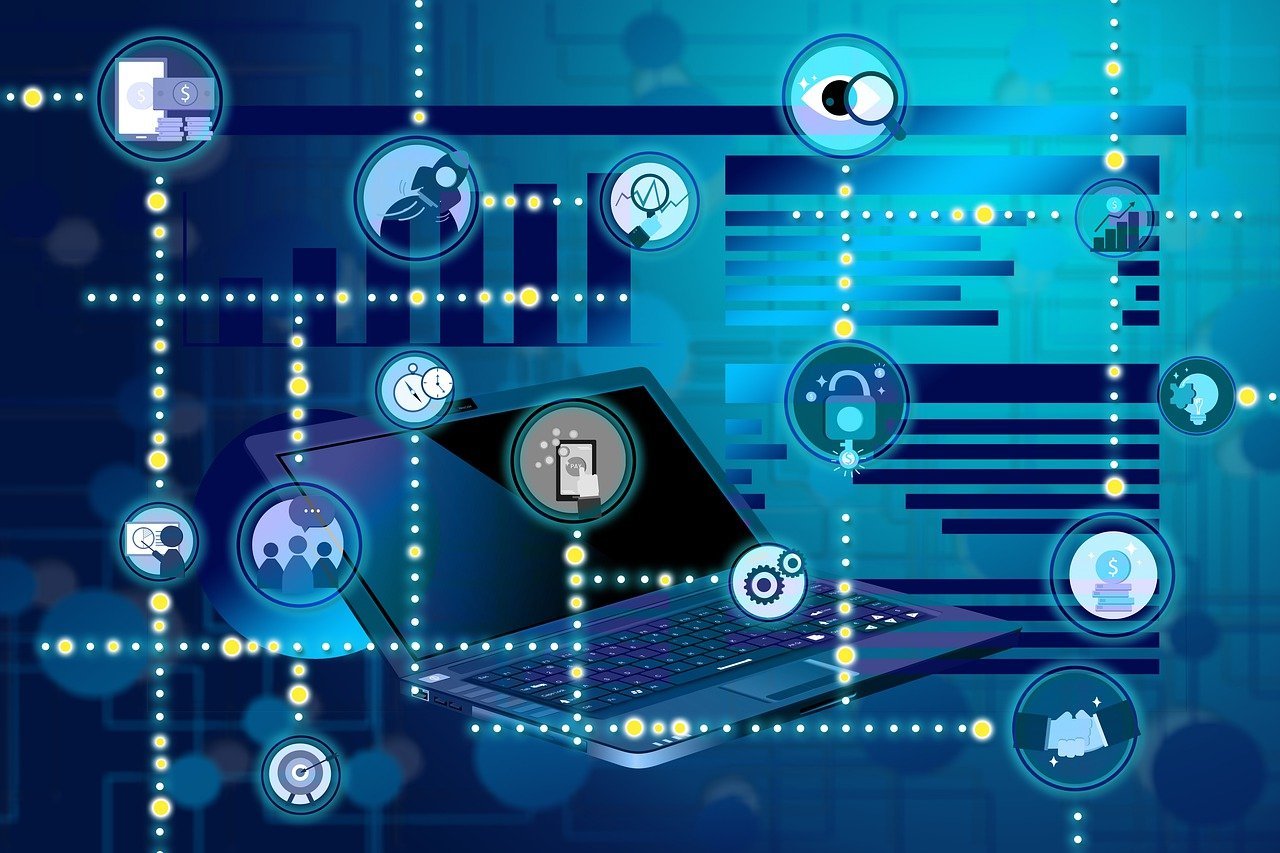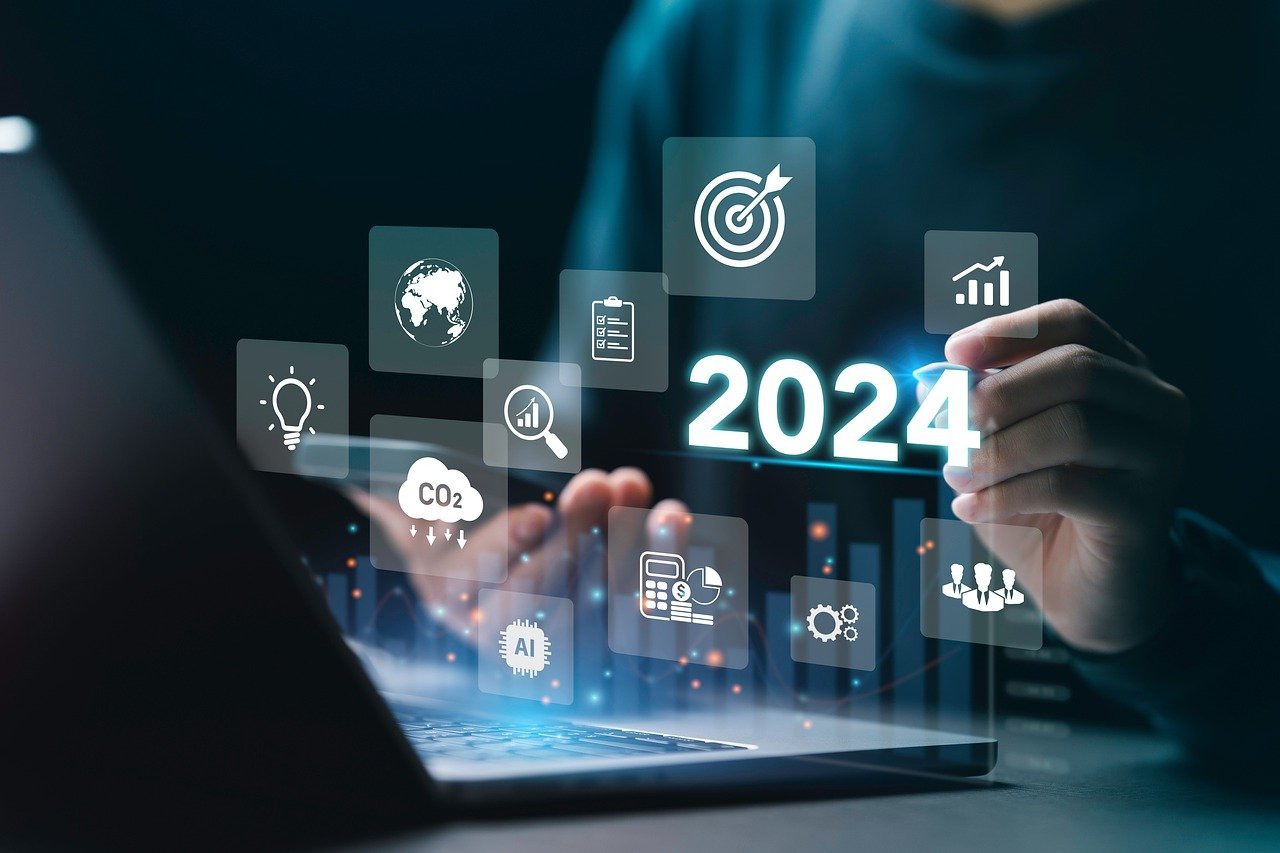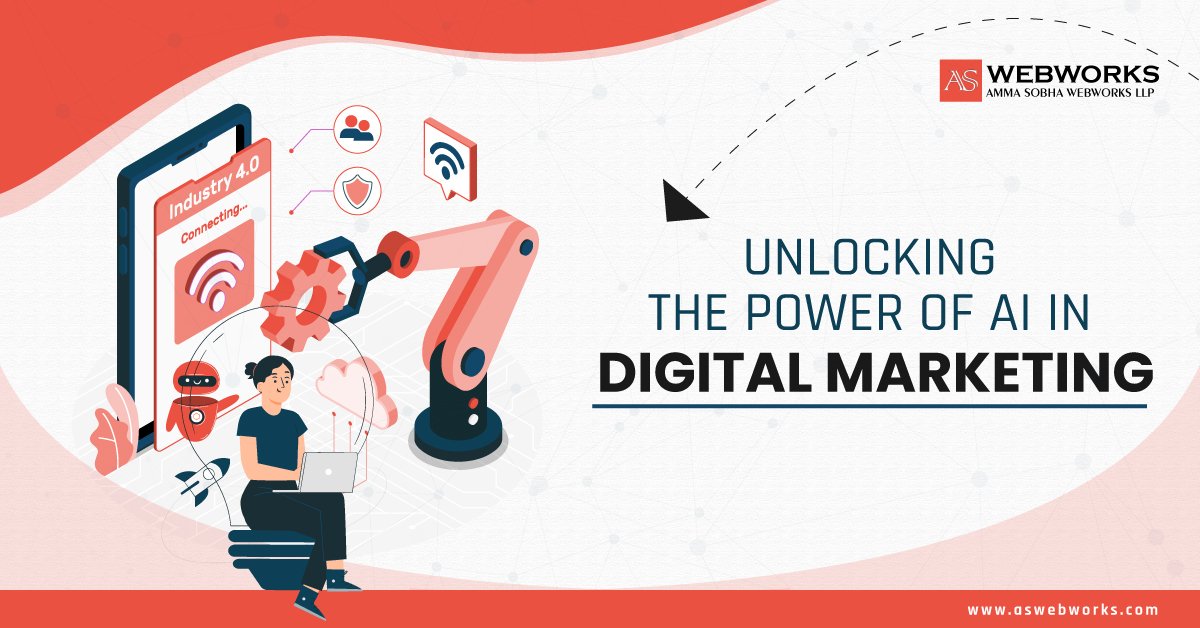In today’s rapidly evolving digital marketing landscape, maintaining a competitive edge is paramount. As businesses strive to connect with their audiences in meaningful ways, the role of artificial intelligence (AI) has become increasingly significant. In this comprehensive guide, we’ll delve into the depths of AI in digital marketing, exploring its functions, benefits, and how it’s reshaping the landscape for brands worldwide.
What is AI?
AI, or artificial intelligence, refers to the simulation of human intelligence processes by machines, primarily computer systems. These processes encompass acquiring knowledge, logical thinking, resolving issues, interpreting stimuli, and comprehending language. In essence, AI enables machines to perform tasks that traditionally require human intelligence.

What is AI in Digital Marketing:
In the dynamic world of digital marketing, AI acts as a trusted ally, helping brands connect with their audience in meaningful ways. Picture AI as a savvy assistant, tirelessly working behind the scenes to enhance your marketing efforts. It’s like having a dedicated team member who can analyze vast amounts of data, uncover valuable insights, and predict future trends with uncanny accuracy.
Think of AI as your guide, navigating the complexities of digital marketing with ease. It’s there to streamline your workflow, automate routine tasks, and provide valuable recommendations based on real-time data. With AI by your side, you can make smarter decisions, optimize your campaigns, and deliver personalized experiences that resonate with your audience on a deeper level.
Imagine AI as the ultimate problem-solver, tackling challenges with efficiency and precision. Whether it’s optimizing your content for search engines, targeting the right audience with precision ads, or engaging customers on social media, AI has you covered. It’s like having a supercharged toolkit at your disposal, empowering you to achieve your marketing goals with confidence.
In essence, AI in digital marketing is more than just technology; it’s a strategic partner in driving success. By embracing AI-driven insights and automation, brands can unlock new opportunities, improve customer experiences, and stay ahead of the competition in today’s fast-paced digital landscape. So, why not harness the power of AI and take your marketing efforts to new heights? After all, with AI, the possibilities are endless.
Using AI in Digital Marketing:

Understanding Your Audience Better:
Imagine having a personal assistant who can sift through mountains of data to understand your customers’ preferences, behaviours, and needs. That’s what AI does for digital marketers. By analyzing data from various sources like social media, website interactions, and past purchases, AI helps you understand your audience on a deeper level. This insight allows you to tailor your marketing efforts to resonate with your audience more effectively.
Creating Hyper-Personalized Content:
Personalization is key in today’s digital landscape. With AI, you can take personalization to the next level. AI-powered algorithms can analyze customer data to create highly targeted content and recommendations. Whether it’s personalized product recommendations, customized email campaigns, or individualized website experiences, AI ensures that each customer feels like you’re speaking directly to them, increasing engagement and conversion rates.
Automating Repetitive Tasks:
Imagine reclaiming hours of your day by automating repetitive marketing tasks. AI allows you to do just that. From scheduling social media posts to sending personalized email campaigns and even responding to customer inquiries via chatbots, AI automation streamlines your workflow, freeing up time for more strategic initiatives. Plus, with AI handling the repetitive tasks, you can ensure consistency and efficiency across all your marketing channels.
Optimizing Advertising Strategies:
Gone are the days of guesswork when it comes to advertising. AI empowers you to optimize your advertising strategies with data-driven insights. AI algorithms can analyze vast amounts of data in real-time to identify trends, predict customer behaviour, and optimize ad targeting. This means your ads are not only reaching the right audience but also at the right time and on the right platform, maximizing your ROI and driving business results.
Improving Customer Experience:
In today’s competitive landscape, providing exceptional customer experiences is non-negotiable and plays a vital role in improving customer satisfaction across multiple points of interaction. From personalized product recommendations to instant customer support through chatbots and even predictive customer service, AI ensures that every interaction with your brand is seamless, efficient, and tailored to the individual customer’s needs.
Measuring and Analyzing Performance:
Understanding the impact of your marketing efforts is essential for continuous improvement. AI-powered analytics tools provide you with comprehensive insights into your campaign performance. From tracking key metrics to identifying trends and patterns, AI helps you make data-driven decisions to optimize your strategies for better results. Whether it’s adjusting your messaging, reallocating resources, or fine-tuning your targeting, AI ensures that you’re always moving in the right direction.
In essence, AI in digital marketing isn’t about replacing human creativity or intuition. Instead, it’s about augmenting human capabilities to make smarter decisions, deliver more personalized experiences, and drive better outcomes. By embracing AI, you can unlock new opportunities, stay ahead of the competition, and create meaningful connections with your audience in today’s digital landscape.
Pros and Cons of AI in Digital Marketing:
Pros:
1. Increased Efficiency:
Think of AI as your trusted assistant, tirelessly working in the background to streamline your marketing efforts. By automating repetitive tasks like data analysis, content optimization, and customer segmentation, AI frees up your time to focus on more strategic initiatives. With AI handling the heavy lifting, you can accomplish more in less time, leading to increased productivity and efficiency.
2. Enhanced Personalization:
One of the most significant advantages of AI in digital marketing is its ability to deliver hyper-personalized experiences to your audience. By analyzing vast amounts of data, AI can understand each customer’s preferences, behaviours, and needs on an individual level. This allows you to tailor your marketing messages, offers, and recommendations to resonate with each customer, driving higher engagement and conversion rates.
3. Improved Decision-Making:
In the contemporary era dominated by data, making well-informed decisions is essential for achieving success. AI-powered analytics tools provide you with actionable insights into your marketing performance, helping you understand what’s working and what’s not. By leveraging AI-driven insights, you can make data-driven decisions to optimize your strategies, allocate resources effectively, and drive better results for your business.
4. Cost Savings:
While implementing AI may require an initial investment, the long-term cost savings can be significant. By automating tasks that would otherwise require human intervention, AI helps reduce labour costs and increase operational efficiency. Additionally, AI-driven optimization can help you maximize the ROI of your marketing efforts, ensuring that you’re getting the most out of your budget.
Cons:
1. Privacy Concerns:
As is often the case, significant capabilities carry significant responsibilities, and AI is no different. One of the main concerns surrounding AI in digital marketing is the potential for privacy breaches and data misuse. As AI algorithms rely on vast amounts of user data to operate effectively, there’s a risk that sensitive information could be compromised if not handled properly. This raises important ethical and regulatory considerations that marketers must navigate carefully.
2. Dependency on Technology:
While AI can undoubtedly enhance your marketing efforts, it’s essential not to become overly reliant on technology. Relying too heavily on AI-driven insights and automation can lead to a lack of human oversight and creativity in your marketing strategies. It’s crucial to strike the right balance between leveraging AI’s capabilities and maintaining a human touch in your marketing efforts.
3. Complexity:
Implementing AI in digital marketing requires expertise and resources, which may be challenging for smaller businesses with limited budgets and technical capabilities. From selecting the right AI tools and platforms to integrating them into your existing workflows, navigating the complexities of AI implementation can be daunting. It’s essential to invest in training and resources to ensure that your team has the knowledge and skills to leverage AI effectively.
4. Ethical Considerations:
As AI becomes more integrated into digital marketing companies, there’s a growing awareness of the ethical implications of AI-driven decision-making. AI algorithms are not immune to biases and prejudices, which can lead to unintended consequences such as discriminatory targeting or reinforcing stereotypes. Marketers must be vigilant and proactive in addressing ethical issues and ensuring that AI is used responsibly and ethically in their marketing efforts.
Conclusion:
In summary, while AI offers numerous types of digital marketing, it’s essential to approach its implementation thoughtfully and responsibly. By leveraging AI’s capabilities while addressing its limitations and ethical considerations, marketers can harness its power to drive better results, enhance customer experiences, and stay ahead in today’s competitive landscape.

